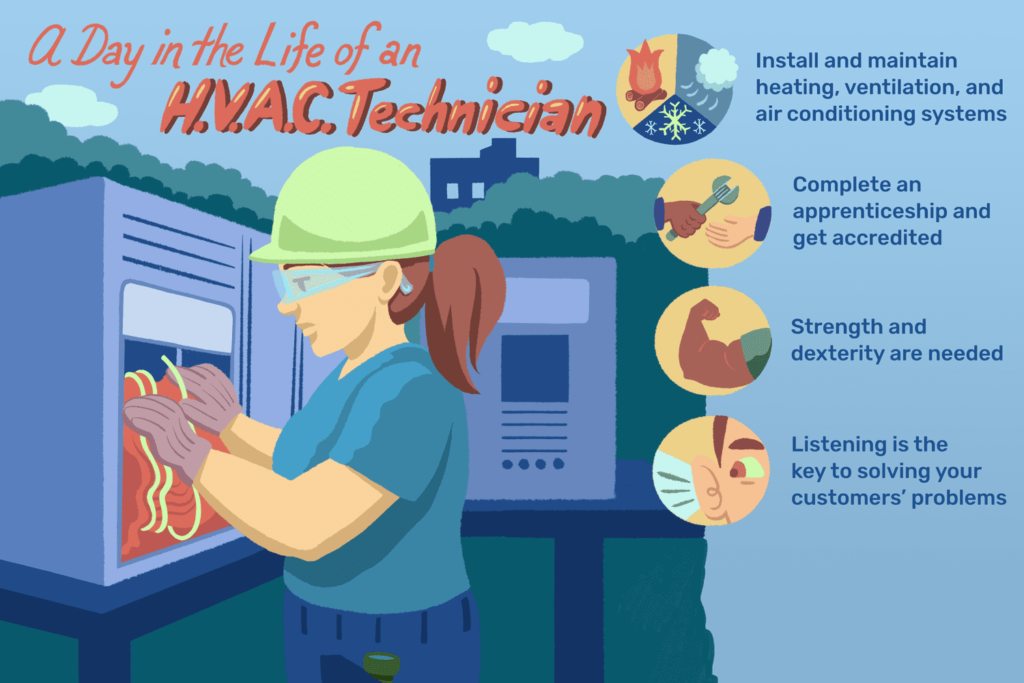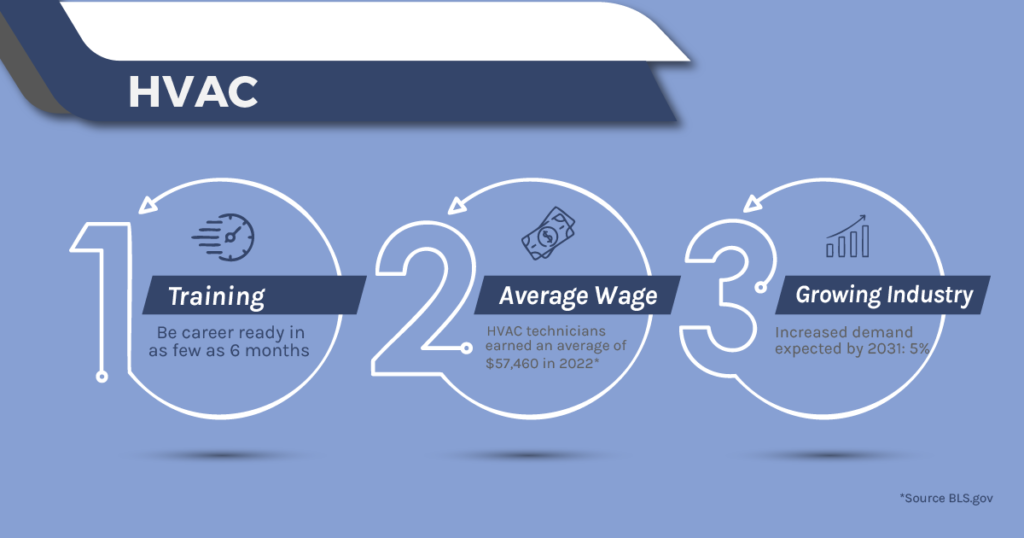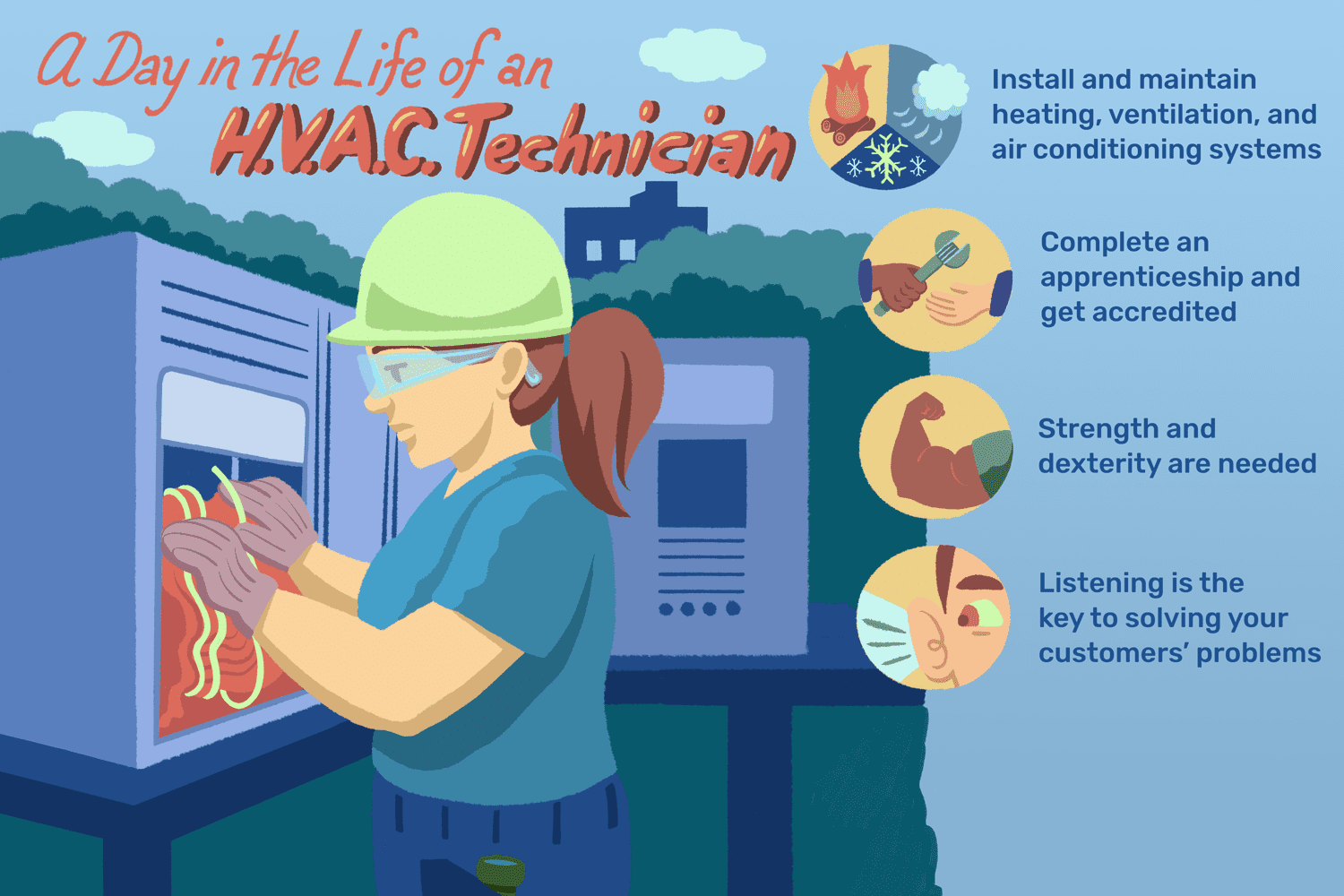Are you interested in pursuing a career as an HVAC technician? If so, it’s crucial to understand the essential requirements that will pave your way to success in this field. From technical skills to education and certifications, this article will provide you with a comprehensive overview of what it takes to become an HVAC technician. So, grab a cup of coffee, sit back, and let’s explore the pathway to your future career!
Education and Training
To pursue a career as an HVAC technician, you’ll typically need to meet certain education and training requirements. While specific requirements may vary depending on your location and employer, there are a few common paths to consider.
High school diploma or GED
Obtaining a high school diploma or GED is often the first step toward becoming an HVAC technician. A solid foundation in math, physics, and other scientific subjects can provide a strong base for understanding the principles of heating, ventilation, and air conditioning systems.
HVAC certification or associate degree
After completing high school, you may choose to pursue additional education in the form of an HVAC certification or associate degree. These programs typically provide more in-depth knowledge of HVAC systems and can help you stand out in a competitive job market.
During your studies, you’ll learn about various components of HVAC systems, such as heating and cooling units, refrigeration systems, and ventilation systems. You’ll also gain practical skills, such as troubleshooting techniques and system design principles.
Apprenticeship program
Another valuable option for aspiring HVAC technicians is to participate in an apprenticeship program. These programs typically combine classroom instruction with hands-on training, allowing you to gain practical experience under the guidance of experienced professionals.
Apprenticeships provide the opportunity to apply your knowledge in real-world scenarios while developing essential skills. You’ll learn how to install, repair, and maintain HVAC systems, as well as how to work safely and efficiently.
Overall, a combination of formal education and practical training through apprenticeships can equip you with the necessary knowledge and skills to embark on a successful career as an HVAC technician.
Licensing and Certification
Once you have completed the required education and training, obtaining relevant licenses and certifications is an important step to demonstrate your competence and ensure compliance with industry standards.
Obtaining and maintaining relevant licenses
To work as an HVAC technician, you will typically need to obtain a license from your state or local regulatory authority. The specific requirements for licensure may vary between jurisdictions, so it’s important to research and comply with the regulations in your area.
In many cases, you will need to pass a written exam covering topics such as HVAC theory, safety practices, and local building codes. Some states may also require you to gain a certain amount of practical experience before obtaining a license.
It’s important to note that licenses often need to be renewed periodically, typically every one to two years. This generally involves completing continuing education courses to stay updated on industry advancements and refresh your knowledge.
EPA Section 608 Certification
In addition to a license, most HVAC technicians in the United States also need to obtain EPA Section 608 certification. This certification demonstrates your understanding of safe handling and disposal of refrigerants, which are regulated by the Environmental Protection Agency (EPA).
The EPA Section 608 certification is divided into four levels, each corresponding to a specific type of HVAC equipment and refrigerant. To obtain certification, you will need to pass an exam that assesses your knowledge of refrigerant handling practices and environmental regulations.
Additional certifications
While not always mandatory, obtaining additional certifications can enhance your credentials and make you a more desirable candidate to employers. There are various industry-recognized certifications available, such as those offered by organizations like North American Technician Excellence (NATE) or the Refrigeration Service Engineers Society (RSES).
These certifications typically require passing an exam that evaluates your expertise in specific areas of HVAC technology or service. They can validate your knowledge and skills in specialized areas, such as residential or commercial HVAC systems, refrigeration, or hydronic systems.
By obtaining relevant licenses and certifications, you demonstrate your commitment to professionalism and your dedication to providing quality HVAC services to your clients.

This image is property of www.partshnc.com.
Technical Skills
As an HVAC technician, having a strong foundation of technical skills is crucial for successfully performing your job duties. Here are some key technical skills that you should develop and refine throughout your career.
Knowledge of HVAC systems and components
Being knowledgeable about the different types of HVAC systems and their components is fundamental for an HVAC technician. This includes understanding how heating, cooling, and ventilation systems function, as well as the various types of equipment and technologies available.
You should be familiar with different heating methods, such as furnaces, heat pumps, and boilers, as well as cooling systems like air conditioners and refrigeration units. Additionally, knowledge of ventilation systems, including air ducts and fans, is essential for proper airflow and indoor air quality.
Understanding the different components of HVAC systems enables you to identify and diagnose problems accurately, as well as perform effective repairs and maintenance tasks.
Understanding of electrical circuits and troubleshooting
Electrical knowledge is crucial for HVAC technicians, as many HVAC systems require connections to electrical circuits. You should have a solid understanding of basic electrical principles, including voltage, current, resistance, and circuits.
Being able to read electrical schematics and diagrams is also essential for troubleshooting electrical issues and ensuring safe operations. This skill allows you to identify faulty connections, damaged wires, or malfunctioning components within HVAC systems.
When working with electrical circuits, it’s vital to adhere to safety guidelines and utilize proper personal protective equipment (PPE) to prevent electrical accidents.
Ability to read blueprints and technical manuals
HVAC technicians often encounter blueprints and technical manuals when installing or repairing HVAC systems. Being able to read and interpret these documents accurately is crucial for understanding the layout, specifications, and requirements of a particular system.
Blueprints provide information on system design, ductwork, and equipment placement. Technical manuals offer guidance on installation, operation, and troubleshooting of specific HVAC units.
By effectively utilizing these resources, you can ensure that HVAC systems are correctly installed, maintained, and repaired according to manufacturer specifications and industry standards.
Developing strong technical skills in areas like HVAC systems, electrical circuits, and blueprint reading will enable you to handle a wide range of tasks and challenges as an HVAC technician.
Problem-solving Skills
As an HVAC technician, you’ll frequently encounter various issues and problems related to heating, ventilation, and air conditioning systems. Possessing strong problem-solving skills allows you to diagnose and resolve these issues effectively. Here are some key problem-solving skills that are essential for success in the field.
Diagnosing and repairing HVAC issues
One of the primary responsibilities of an HVAC technician is diagnosing and repairing problems within HVAC systems. Whether it’s a malfunctioning component, air imbalance, or inadequate heating or cooling, identifying the root cause of the issue is crucial for implementing the appropriate solution.
This requires a combination of technical knowledge, critical thinking, and attention to detail. You’ll need to systematically evaluate the system, perform tests, and analyze data to pinpoint the source of the problem.
Once the issue is identified, you’ll need to draw upon your technical expertise to repair or replace faulty components. This may involve soldering, brazing, electrical work, or other repair techniques.
Performing routine maintenance and inspections
In addition to troubleshooting and repairs, HVAC technicians also perform routine maintenance and inspections to ensure the optimal performance and longevity of HVAC systems. This proactive approach helps prevent future issues and ensures that systems are operating efficiently.
During maintenance visits, you’ll clean components, inspect filters and ductwork, lubricate moving parts, and perform other tasks to keep the system in good working condition. You’ll also check for any potential issues or signs of wear and tear that may require attention.
A keen eye for detail and a thorough understanding of HVAC systems are crucial for conducting comprehensive inspections and identifying potential issues before they become major problems.
Identifying energy-efficient solutions
Energy efficiency is an increasingly important consideration in HVAC systems. As an HVAC technician, you should possess the knowledge and skills to assess the energy efficiency of a system and recommend improvements.
This may involve suggesting upgrades to more efficient equipment, advising on proper insulation and sealing, or proposing smart thermostat installations. By helping clients make energy-efficient choices, you not only reduce their environmental impact but also help them save on energy costs.
By honing your problem-solving skills, you’ll have the confidence and ability to tackle any HVAC issue that comes your way. Whether it’s diagnosing complex problems, performing routine maintenance, or suggesting energy-efficient solutions, your problem-solving skills will be critical in ensuring customer satisfaction.

This image is property of careersidekick.com.
Physical Stamina and Strength
Working as an HVAC technician can be physically demanding, requiring you to perform tasks that involve strength, dexterity, and endurance. Here are the key physical requirements of the job that you should be prepared for.
Ability to lift heavy equipment and tools
HVAC systems often involve heavy equipment, such as air conditioning units, furnaces, and boilers. As an HVAC technician, you’ll frequently be required to lift, move, and install these heavy objects.
Having the physical strength and stamina to handle these tasks safely and efficiently is crucial. Proper lifting techniques and using appropriate lifting equipment, such as dollies or lifting straps, can help minimize the risk of injury.
Working in various weather conditions
HVAC technicians often work outdoors or in unconditioned spaces, regardless of weather conditions. Whether it’s scorching heat or freezing temperatures, you’ll need to adapt and perform your duties in any climate.
It’s important to dress appropriately and use appropriate protective gear to ensure your safety and comfort. This may include wearing sunscreen, hats, and lightweight, breathable clothing in hot weather, or layering up and using insulated clothing in colder climates.
Climbing ladders and working in confined spaces
HVAC systems are not always easily accessible, and you may find yourself working in tight spaces or at heights. This requires the ability to climb ladders safely and comfortably, as well as the agility to maneuver in confined areas.
Working comfortably in confined spaces may involve crouching, crawling, or reaching into small openings to access components. Being physically fit and flexible allows you to navigate these situations with ease.
Maintaining physical fitness through regular exercise and incorporating strength and flexibility training into your routine can help improve your ability to meet the physical demands of the job.
By being physically capable and prepared for the demands of the role, you can ensure efficient and safe installation, repair, and maintenance of HVAC systems.
Communication Skills
Having strong communication skills is essential for an HVAC technician, as you’ll interact with clients, colleagues, and other stakeholders regularly. Effective communication ensures that everyone is on the same page, and problems and issues are addressed promptly and accurately.
Effectively communicating with clients and colleagues
As an HVAC technician, you will interact directly with clients when performing service calls or installations. It’s important to be friendly, approachable, and professional in all interactions.
Listening to clients’ concerns and providing clear explanations of the work to be done can help establish trust and ensure that their needs are met. Additionally, being able to communicate technical concepts in simple terms allows clients to understand the issues and solutions involved.
Collaboration and effective communication with colleagues are also vital, particularly when working in teams or coordinating with other professionals involved in a project. Being able to convey information clearly and concisely helps ensure that tasks are carried out efficiently.
Listening and understanding customer needs
Actively listening to clients’ concerns and requirements is an essential part of the job. By fully understanding their needs, you can provide tailored solutions and address any specific concerns they may have.
While conducting service calls or consultations, take the time to listen attentively to clients, ask clarifying questions, and reiterate their concerns to ensure you have a clear understanding. This demonstrates your commitment to customer service and helps build lasting relationships.
Providing clear and concise instructions
When performing installations or repairs, you’ll often need to provide instructions to clients on the operation and maintenance of their HVAC systems. Clear and concise instructions ensure clients can make the most of their systems and avoid potential issues.
This involves explaining technical concepts in a way that is easy to understand, using non-technical language whenever possible. Visual aids, such as diagrams or demonstrations, can also be helpful in conveying information effectively.
By employing strong communication skills, you’ll create positive experiences for clients, foster effective teamwork, and ensure that everyone involved in a project is well-informed and aligned.

This image is property of www.liveabout.com.
Time Management Skills
Efficiently managing your time and prioritizing tasks is crucial for an HVAC technician. Juggling multiple assignments, meeting deadlines, and providing timely service to clients are all part of the job. Developing strong time management skills can help you stay organized and productive.
Managing workload and assignments
As an HVAC technician, you’ll often have multiple assignments and service calls to attend to throughout the day. Being able to manage your workload effectively ensures that you can complete tasks efficiently and make the most of your time.
This involves planning and prioritizing your assignments based on urgency, client requirements, and the estimated time needed for completion. Scheduling appointments and setting realistic expectations with clients can help avoid conflicts and ensure smooth operations.
Completing tasks within deadlines
Meeting deadlines is a key aspect of providing prompt and efficient HVAC services. Whether it’s responding to service calls, completing installations, or finishing preventive maintenance visits, being able to work with a sense of urgency is crucial.
Breaking down larger tasks into smaller, manageable steps, setting realistic timelines, and staying focused on the task at hand can help ensure that you complete your work within the required time frame.
Ability to prioritize and multitask
In the field, you’ll often encounter unexpected situations or last-minute requests that require flexibility and adaptability. Prioritizing tasks on the fly and being able to handle multiple responsibilities simultaneously is an important skill for an HVAC technician.
By assessing the urgency and impact of each task, you can determine the most efficient course of action. This may involve rearranging your schedule, communicating with clients and colleagues, and adjusting your approach to ensure that all critical tasks are addressed in a timely manner.
Having strong time management skills allows you to provide efficient and reliable service to clients while maintaining a sense of control and minimizing stress.
Attention to Detail
Attention to detail is a critical skill for an HVAC technician, as it ensures that systems are installed, maintained, and repaired correctly. Failing to pay attention to small details can lead to inefficiencies, safety hazards, and other issues. Here’s how attention to detail plays a role in your work:
Thoroughly inspecting HVAC systems
When performing inspections on HVAC systems, it’s essential to be thorough and meticulous. Conducting a comprehensive assessment of the entire system, including all components, ductwork, and insulation, helps identify potential issues and areas for improvement.
By paying attention to details such as loose connections, damaged parts, or signs of wear, you can proactively prevent problems and ensure that the system operates efficiently and safely.
Identifying potential issues or safety hazards
Being observant and detail-oriented enables you to identify potential issues or safety hazards during inspections or repairs. This includes noticing signs of faulty wiring, leaks, inadequate ventilation, or any other conditions that may compromise system performance or pose risks to occupants.
By addressing these issues promptly, you can prevent further damage, optimize system performance, and ensure the safety and comfort of those using the space.
Accurately documenting work performed
Keeping detailed and accurate records of the work you perform is essential for maintaining a history of system maintenance, repairs, and installations. Proper documentation allows you to track system performance over time, reference previous work, and provide valuable information to clients or colleagues.
Clear and concise documentation ensures that the information is easily accessible and understandable by others who may need it in the future. This may include details such as system specifications, performed repairs, replaced components, and any recommendations for future maintenance.
By maintaining a keen eye for detail, you can deliver high-quality service, identify potential issues before they become significant problems, and ensure the safety and efficiency of HVAC systems.

This image is property of niche-career-now.s3.amazonaws.com.
Troubleshooting and Analytical Skills
As an HVAC technician, being able to troubleshoot problems and analyze situations is crucial for diagnosing issues, developing solutions, and ensuring effective system operation. Here’s how these skills come into play:
Identifying and analyzing problems
When clients experience HVAC issues, it’s your job to accurately identify the problem and determine its cause. Troubleshooting involves a systematic approach to assess and eliminate potential causes until the root issue is identified.
By utilizing your technical knowledge, observation skills, and logical reasoning, you can narrow down the possible problems and conduct the necessary tests or inspections to confirm your findings.
Developing effective solutions
After identifying the problem, your analytical skills come into play as you develop effective solutions. This may involve determining the most appropriate repair method, identifying necessary replacement parts, or proposing system enhancements to avoid future issues.
Analyzing the impacts and trade-offs of different solutions allows you to recommend the best course of action based on the client’s needs, budget, and system requirements.
Testing and calibrating equipment
Once you’ve performed repairs or installed new HVAC equipment, thorough testing and calibration are necessary to ensure proper functionality. This includes verifying temperature and pressure readings, airflow rates, and system performance against manufacturer specifications.
Analytical skills are essential for interpreting test results, identifying anomalies or discrepancies, and making the necessary adjustments to achieve optimal performance.
By honing your troubleshooting and analytical skills, you’ll have the ability to efficiently diagnose and resolve HVAC issues, minimize system downtime, and ensure the effective operation of systems.
Professionalism and Work Ethic
Maintaining a high level of professionalism and a strong work ethic is essential for any HVAC technician. Professionalism encompasses various aspects of your conduct and demeanor, while work ethic reflects your dedication and commitment to your craft.
Maintaining a professional appearance
As an HVAC technician, you often interact directly with clients, both in their homes and commercial settings. Presenting yourself in a professional manner helps foster trust and confidence in your abilities.
This includes dressing appropriately in clean and professional attire, wearing proper protective gear, and adhering to professional hygiene practices. Communication should be polite and respectful, and you should always be mindful of your behavior and conduct while representing your employer.
Being punctual and reliable
Punctuality is crucial in the HVAC industry, as clients rely on your timely arrival for installations, repairs, or routine maintenance. Demonstrating a strong sense of respect for your clients’ time by consistently arriving promptly builds trust and fosters positive relationships.
Reliability goes hand in hand with punctuality. Your clients expect you to follow through on commitments, complete assignments within agreed-upon time frames, and provide consistent quality service. This includes promptly responding to service calls or inquiries and effectively communicating any changes or delays.
Having a strong work ethic
A strong work ethic is characterized by a commitment to excellence, a diligent attitude, and a willingness to go the extra mile. HVAC technicians with a strong work ethic take pride in their work and strive for efficiency, accuracy, and customer satisfaction.
This may involve staying updated on industry advancements and technologies, participating in continuing education courses, or pursuing additional certifications to expand your knowledge and skills.
Demonstrating a strong work ethic not only helps you excel in your role but also reflects positively on your employer and the HVAC industry as a whole.
By embodying professionalism and maintaining a strong work ethic, you’ll build a reputable image as an HVAC technician and contribute to a positive customer experience.
In conclusion, becoming an HVAC technician involves meeting various requirements, developing a wide range of skills, and embodying essential qualities. From education and training to licensing and certification, technical skills to problem-solving abilities, physical stamina to communication and time management, attention to detail to troubleshooting and analytical skills – every aspect plays a crucial role in ensuring your success as an HVAC technician.
By continually refining these skills, maintaining professionalism, and embracing a strong work ethic, you can build a rewarding and prosperous career in the HVAC industry.

This image is property of florida-academy.edu.

